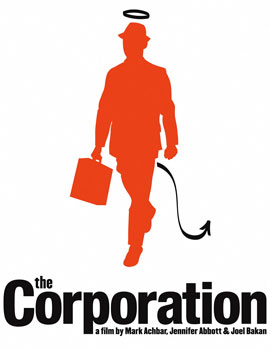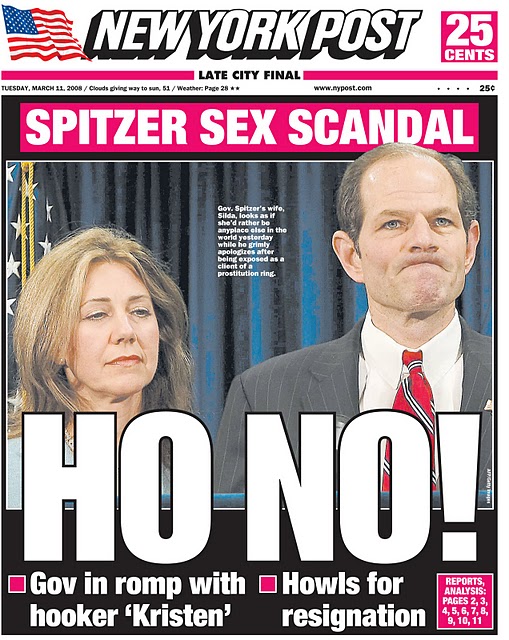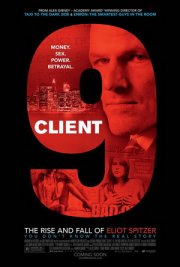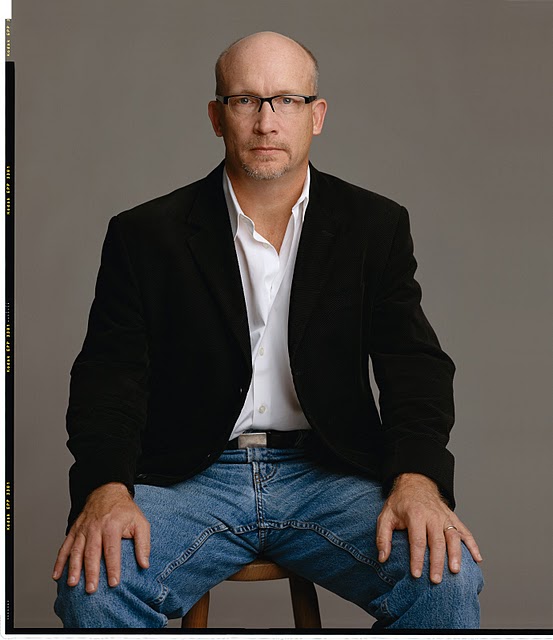
Anyone who has seen The Corporation (a brilliant 2003 Canadian documentary) knows that business executives will go to any length (no matter the human cost) to extend their profit margins. In an age when corporations are claiming the same right to freedom of speech as that guaranteed by the United States Constitution to citizens who vote, it's interesting to see how The Corporation likens corporate behavior to the clinical definition of a psychopath.

Poster Art for The Corporation
- This year, we saw devastating evidence of corporate negligence by Halliburton and British Petroleum following the Deepwater Horizon oil spill in the Gulf of Mexico.
- Joe Berlinger's 2009 documentary, Crude, examines the toxic impact Chevron has had on the indigenous people of Ecuador and their environment.
- Charles H. Ferguson's documentary, Inside Job, examines the the financial crisis of 2007-2010.
- Analysts have recently shown how money spent by the United States Chamber of Commerce to influence elections has come from overseas corporations hoping to acquire lucrative outsourcing contracts.
While some Americans are shocked that corporations would lay waste to the environment or take jobs away from Americans, to imagine for one second that patriotism plays a role in corporate decisions is utterly naive. It's all about the bottom line and how corporate incentives are used to squeeze larger profits from current and future operations.
Following the Supreme Court's ruling in the Citizens United v. Federal Election Commission case on January 21, 2010, corporations were given a green light to spend as much money as they wish to influence American elections. According to the Campaign Media Analysis Group, since January 1, 2010 more than $65 million has been spent on 161,203 ads attacking Speaker Nancy Pelosi (and that's just the tip of the iceberg).
The giant egos of Wall Street CEOs who thought of themselves as "Masters of the Universe" are put brazenly on display throughout Client 9: The Rise and Fall of Eliot Spitzer. That filmmaker Alex Gibney was able to get some of these people to talk in front of a camera is testament not only to his skills as a documentarian, but to their sense of omnipotence and entitlement as well.
Gibney initially approached journalist Peter Elkind to see if they might work together on the story (Elkind had known Spitzer while they were enrolled at Princeton and had interviewed him several times for Fortune) magazine. Elkind (who had collaborated with Gibney on Enron: The Smartest Guys In The Room) sensed that the story had acquired a new set of legs. As the filmmaker explains:
Usually, a book becomes a movie. That was the case with The Smartest Guys in the Room, which Peter had written with Bethany McLean before I made the film. But in this case, we decided that I would make a film and Peter would write a book separately but simultaneously -- sharing resources, discoveries, and ideas the whole time with each other -- but without one determining the final shape of the other. Elkind's book on Spitzer, Rough Justice: The Rise and Fall of Eliot Spitzer, was published in April 2010.
Ironically, a documentary about how the man who looked certain to become the first Jewish president of the United States saw his political career go up in smoke (after it was revealed that he had been seeing a prostitute) is hitting theatres at the same time that former President George W. Bush is out pushing his recently published autobiography.
No doubt, you're wondering what the connection is (this is easier than playing Six Degrees of Kevin Bacon). Eliot Spitzer just became a pundit on CNN. Karl Rove (the man known as "Bush's brain") is now a pundit on Fox News.
Although you never hear any mention of Rove's name during Gibney's thoroughly researched documentary about Eliot Spitzer, that's because Rove has a long history of engineering dirty political tricks that can't be traced back to him. But if you look closely at how Spitzer was taken down, the first thing you'll notice is that the man who was known as the Sheriff of Wall Street had pissed off some top-level Republican donors.
- The kind of people who use their money and power like the Mafia.
- The kind of people who know who to call when they want someone out of the way.
- The kind of people who consider themselves above the law.
- The kind of people who know Karl Rove.

Anyone familiar with Rove's history of dirty tricks can sense his influence in the way Spitzer was taken down. Among the Wall Street thugs who contributed to his downfall are:
- Kenneth Langone, co-founder of The Home Depot and a former director of the New York Stock Exchange who had been singled out by Spitzer for approving a staggeringly high pay package for Dick Grasso, the former head of the New York Stock Exchange.
- Maurice R. "Hank" Greenberg, the former Chairman and CEO of AIG . In 2005, the board of AIG asked Greenberg to resign from his post as CEO not long after Attorney General Spitzer had begun an investigation into fraudulent business activities at AIG and a subsidiary of Warren Buffet's Gen Re.
- Joseph Bruno, the long-standing majority jeader of the New York State Senate when Spitzer became Governor. Bruno later served as lieutenant governor of New York but, in 2009, was convicted on federal corruption charges.
- Roger Stone, one of the most famous lobbyists on the American political scene and a renowned Republican strategist who has referred to himself as a GOP "hitman." A consultant to Joseph Bruno in 2007, he was forced to resign after allegations that he had threatened Spitzer's father in an obscene and angry voice-mail traced by private detectives to his home. Although Stone has always denied he made the phone call, he admits to writing a letter to the FBI that might have alerted them to Spitzer's use of prostitutes.

Poster art for Client 9: The Rise and Fall of Eliot Spitzer
In a sense, Client 9: The Rise and Fall of Eliot Spitzer could easily have been subtitled For Hedge Fund Managers Who Have Considered Bailout Money When Their Bonuses Weren't Enuf. This is a story about greed, arrogance, vendetta, and sex. It's a story about what happens at the higher echelons of politics and prostitution.
It's also the story of a man with a tragic flaw that is almost Shakespearean in nature. With his obsessive attention to detail, Spitzer made sure that his actions could not be traced by use of a credit card or checking account. However, he forgot one thing: it's the smallest, stupidest details that usually trip up the most brilliant, complex minds. Just remember that Spitzer did not get caught in an FBI wiretap without someone suggesting that he be followed. As Gibney recalls:
When the story exploded, I was as shocked as everyone else. There was such a torrential downpour of media coverage that it was hard to know what was under the surface or what the angle would be. Everyone was talking about it and, of course, everyone wanted to know more about the more salacious details. But it was only when I started researching Spitzer's story that I began to see that it had so many other facets to it -- not just adultery and high-priced, extracurricular sex -- but political gamesmanship, the possibility of conspiracy, and it was all set against a volatile time in New York as the financial collapse was looming.
A lot of politicians get caught with their pants around their ankles, but Spitzer was different. He was supposed to be the paragon of virtue, the Dudley Do-Right who did no wrong. He wasn't a well-known charmer like Bill Clinton. He wasn't even a guy who was known for being even a little flirtatious. Answering my questions meant examining an aspect of his life where he indulged a hidden side of himself. As tough as it was for him to express himself in this area, I think Spitzer at least had a larger understanding that his mistakes needed to be examined. He's a fascinating psychological study. He knew he had made a lot of enemies on Wall Street and in the Republican ranks of the legislature. He knew these men were very angry with him, that they wanted revenge, and he knew they played hardball. Yet, even knowing all of that, Spitzer still gave them everything they needed to take him down.

Filmmaker Alex Gibney
As for the federal investigation, I found the manner and the timing to be very suspicious. While al-Qaeda was at large and the entire global economy was collapsing, the Department of Justice's Southern District of New York (responsible for policing Wall Street and terrorism, among other things) was spending extraordinary man-hours and resources to track down a small-time escort service. Spitzer did technically break federal law but historically the Justice Department never goes after small-time prostitution rings and explicitly has a policy of not prosecuting 'Johns' under an antiquated statute called the Mann Act. So I do think the investigation was intended as a form of political assassination. The goal, I believe, wasn't to charge him with a crime (there really wasn't any federal crime to charge him with) but rather to leak salacious details that would embarrass him and bingo, he'd have to resign. And so Spitzer was brought down just as everything on Wall Street was going up in flames."
There are many sad ironies in Client 9: The Rise and Fall of Eliot Spitzer, not the least of which is the near collapse of the U.S. economy soon after Spitzer stepped down from office. The odd thing is that, as you watch Gibney's film, instead of silently thinking about news events or another documentary, you might find yourself referencing 2004's Mean Girls.
There are times during Client 9: The Rise and Fall of Eliot Spitzer when you'll laugh and snicker. At other moments, you might just groan in disgust and disbelief. Once the film ends, you may simply want to take a long, hot shower while mumbling Macbeth's famous words: "Will all great Neptune's ocean wash this blood clean from my hand? No; this my hand will rather the multitudinous seas incarnadine, making the green one red."
To read more of George Heymont go to My Cultural Landscape.
